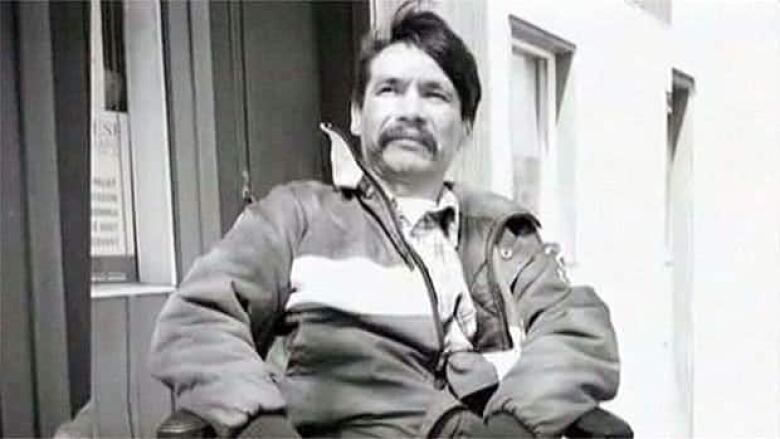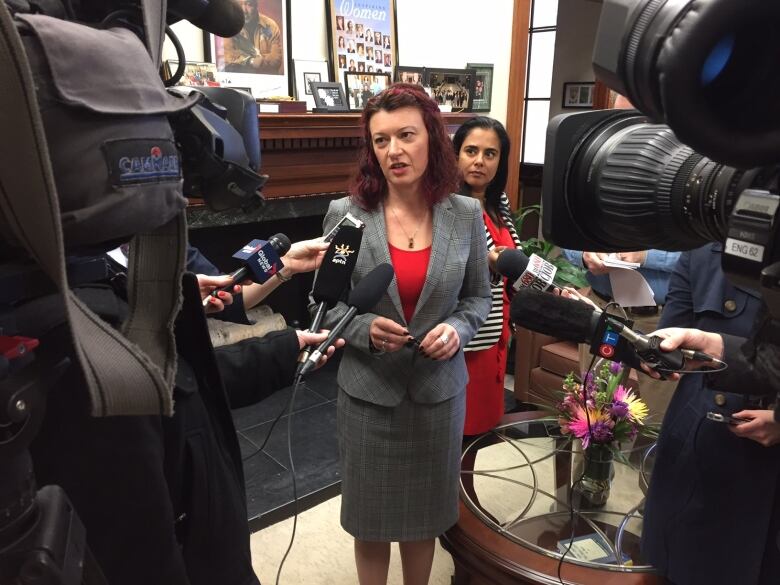Brian Sinclair inquest recommendations could take years to implement
Sinclair family remains critical of inquest report, but hopeful changes will help prevent future tragedies

Manitoba Health Minister Sharon Blady said Thursday that while there are many practical challenges that lie ahead in terms of preventing similar tragedies in the future, a change in culture is also necessary,
"A lot of this is about culture change, and it's about system change and those are the kinds of things where you need to work on the ground with the individuals involved," said Blady. "You also need to assess broader policy, so again, it's about moving forward in the best way possible to ensure there's thorough and systemic change."
Robert Sinclair, Brian's cousin, said he hopes the province stands by itsword.
"I'm hoping that they address the issues that were brought up that were ignored about discrimination about certain groups in the health-care system," saidSinclair."I believe that itis still a concern.
"Where is that stuff learned?Where does that come from? Why do people make those assumptions?"
'Preventable' death
Sinclair, a 45-year-old who was a double-amputee,died of a treatable bladder infectionwhile waiting for care in the emergency room at Winnipeg's Health Science Centre. He was found dead in his wheelchair 34 hours after arriving at the hospital.
The case drew the ire of health-care and aboriginal advocates, who said Sinclair was ignored and that his death was the product of systemic racism toward indigenous people.
"Something went wrong in that system and we're not going to get the total truth of what happened," Robert said."They white-washed that all along. The guy sat there because they thought he was a drunkIndian... somebody that you would seeand come across hard times, and they decided to totally ignore him."
-
Brian Sinclair's death 'preventable' but not homicide, says inquest report
-
Brian Sinclair's family reviewing ER death inquest report, says lawyer

But Vilko Zbogar, co-council for family of Sinclair, said the inquest overlooked the root cause that led to Brian's death.
"They made assumptions based on the way he looked, the fact he was aboriginal, based on the fact he was poor, so assumed he didn't need care," said Zbogar. "What the inquest didn't do and what the province isn't doing is really examining why people made those assumptions, based solely on how Brian Sinclair looked."
Blady said there were several changes made at HSCin theimmediate aftermath of Sinclair's death. Specifically, Blady saidtriage protocols were assessed and bolstered to ensure patients received proper care during the intake process.
"Within days, we had already moved to a system there at HSC where it has to do with identification, diagnostics, triaging and the green bracelet protocol," said Blady. "Those kinds of things were immediate actions and are the foundation for future actionsthat were taken elsewhere and can be taken further."
24-month plan
The province has set out a 24-month timeframe for the plan.Blady was asked by reporters why it will take more than two years to implement some of the recommendations.
"I want to make sure that we are doing the right thing for each area of the province, for each ER and the services that are provided," he responded. "This is about systemic change and that can't happen overnight.It has to be built on a strong foundation."
A task forceof senior staff from Manitoba's regional health authorities, the deputy minister of health and severalhealth organization membersthroughout the province helped develop theplan and timelinefor implementing changes.
In the short term, the province said it will focus on making changes in emergency rooms that see more than 10,000 visitors per year. From there, smaller departments will undergo changes based on the layout of hospital buildings, staffing and the needs of patients.
"Each facility is unique.I'm looking forward to folks staying on top of those timelines, because we do need to move this forward and [ensure]that each community has the best health care that they can provide," said Blady.
"So again, I would like people to stay very tightly to those timelines."
Many of the of the recommended changesare already underway, he said.
"People have already seen changes from the time of his passing to now," she said. "We're looking forward to making more changes. I want every Manitoban to have the highest quality health care.Rapid response, high quality response.It's what we all want and deserve."
Robert said he hopes the changes make a difference.
"We need to help these people from falling through the cracks of the system. It's abuse," he said.
Sinclair's family is continuing with its lawsuit against the province and callsfor a public inquiry.













_(720p).jpg)


 OFFICIAL HD MUSIC VIDEO.jpg)
.jpg)



























































































